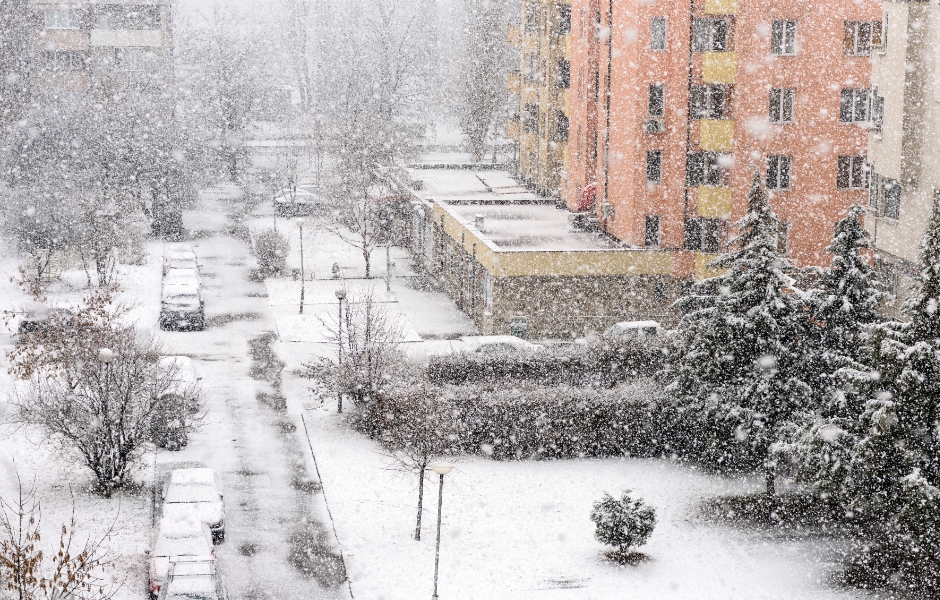Five Warning Signs That Your Loved One Should Be Considering a Move to a Retirement Home / Senior Community

Why More and More Parents Are Moving Into Retirement Communities
April 23, 2021
Winter Moving Safety for the Elderly
November 24, 2022It’s not easy to admit that one is getting older, especially when your body and your mind are not what they used to be. Moving a family member into a senior’s residence is never a simple decision. It may not be easy to broach the subject with your loved ones. In fact, they may be resistant to moving and they may fear losing their independence.
However, here are 5 warning signs that your loved one should be considering a move to a retirement home or senior’s residence:
- Physical
When there are physical and anatomical signs of deterioration that will affect their well-being and their safety. A person who is having trouble getting out to shop or remembering how to cook or when to eat can result in significant nutritional issues. This could range from unhealthy weight loss or conversely, excessive weight gain. Check the fridge and watch meal-prep skills. Other examples include loss of sight or hearing, loss of balance, stroke, disease. or physical conditions, such as arthritis and osteoporosis.
- Mental Behaviour – Cognitive, Language, and Decision Making
Cognitive decline can have serious ramifications, especially if your loved one can’t take medications correctly, is not able to fix a meal or doesn’t remember to eat. If a loved one exhibits confusion, poor judgment, or other signs of cognitive impairment, assisted living is often a good next step. Symptoms of agitation and aggression in behaviour otherwise known as “Sundowner syndrome” are a common characteristic of those with Alzheimers or other forms of Dementia. This can take a heavy toll on caregivers and other family members when it begins to severely disrupt family routine and decision making thus causing caregivers to suffer or begin to feel resentful.
- Caregiver Stress
There are the psychological costs of caregiving and of making difficult care decisions, which can be compared to the effects of post-traumatic stress disorder. Caregivers may experience symptoms like disabling anxiety, hyper-vigilance and more. The emotional, mental and physical toll of caregiving can be particularly pronounced for adult children or spouses of those who need care. In cases like this, when the demands of care become too great, it might be clear immediately. In other cases, it might not be so obvious.
- Safety and Security
This is a common reason why families consider a move. They noticed that their loved ones are not as sure on their feet as they used to be or their eyesight is less clear, causing them to be a fall risk. Most falls occur as a result of compounding factors that combine and overwhelm an older person’s ability to maintain or regain his or her balance. According to the Canadian Public Health Agency, falls remain the leading cause of injury-related hospitalizations among Canadian seniors. In fact, 20%-30% of seniors fall each year. Falls and associated outcomes not only harm the injured individuals but also affect family, friends, care providers and the health care system.
- Loneliness
It’s normal for activity to decrease with age. But if your loved one once enjoyed spending time in the yard gardening, or simply being with friends, and then chooses to no longer engage in these activities, or rarely leaves the house, it may be time to consider a senior living residence. This is a sign that behavioral changes are underway.
When considering your loved ones well-being, it is a good time to examine yours as well. Is all your time being taken to care for them? Are you feeling isolated and alone? If you begin to feel resentful of your loved one, it might be time to examine the source of those feelings. Sleep deprivation, anger, resentment – all those things will become part of what happens to a caregiver. Are you able to take on this added responsibility? It is not an easy decision to make. Sometimes, it is best to discuss with other family members or with those who have gone through the experience to obtain their advice. Helping your loved ones to recognize the signs of when it is time to move, having an open dialogue with the family members involved and taking the time to discuss the options will go a long way in making the transition to senior care residence more agreeable for everyone.
For more information about the ideal senior living community and transition support, please feel free to contact Matt Del Vecchio, President of Lianas Senior Transition Support, at mdelvecchio@lianasservices.com




